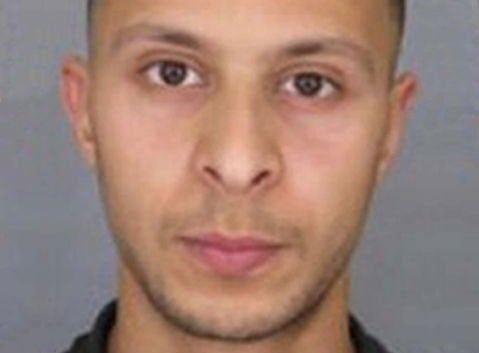Salah Abdeslam: Did Paris terror suspect run away in disgust or is this just camouflage?
There is still no sign of the only survivor of the 10-strong group of attackers who killed 130 people in Paris

Your support helps us to tell the story
From reproductive rights to climate change to Big Tech, The Independent is on the ground when the story is developing. Whether it's investigating the financials of Elon Musk's pro-Trump PAC or producing our latest documentary, 'The A Word', which shines a light on the American women fighting for reproductive rights, we know how important it is to parse out the facts from the messaging.
At such a critical moment in US history, we need reporters on the ground. Your donation allows us to keep sending journalists to speak to both sides of the story.
The Independent is trusted by Americans across the entire political spectrum. And unlike many other quality news outlets, we choose not to lock Americans out of our reporting and analysis with paywalls. We believe quality journalism should be available to everyone, paid for by those who can afford it.
Your support makes all the difference.They seek him here, they seek him there. The French and the Belgians – and conceivably Islamic State (IS) – are still searching for Salah Abdeslam everywhere.
After five weeks, there is no sign of the only survivor of the 10-strong group of attackers who killed 130 people in Paris on 13 November.
French and Belgian investigators have pieced together a puzzling series of journeys to six European countries by Abdeslam, 26, in the nine months before the attacks. But what happened to him afterwards?
It emerged last week that the Belgian authorities may have allowed Abdeslam – Europe’s most wanted man – to elude arrest in Brussels on the Monday following the Paris murders. He had been located in a house in Molenbeek, in eastern Brussels, but the police – applying a law banning night-time raids – seemingly allowed him to be smuggled out. Authorities in Belgium have, however, denied this.
The deepest mystery, though, surrounds Abdeslam’s erratic behaviour in Paris on the night of the attack in the French capital. Everything points to the fact that, unlike his older brother Ibrahim, Salah Abdeslam pulled out of a suicide attack at the last minute.
He bought a telephone SIM card at a shop in the 18th arrondissement in northern Paris one hour after the attacks. According to a first IS statement claiming responsibility, a fourth attack was planned in the 18th but never happened.
Abdeslam used the phone card to telephone two friends in Brussels and ask them to rescue him. He then wandered in the Paris area for nearly nine hours before being collected by the friends in Châtillon – an inner suburb on the opposite side of the city – at around 7am.
An explosives belt, believed to have been dumped by Abdeslam, was found in a dustbin in Montrouge, near Châtillon, ten days later. However, the bins had already been emptied three days after the Friday 13th attacks.
“This is not the behaviour of someone whose escape, and survival, was planned,” a source in the French investigation told The Independent on Sunday. “On the other hand, it is wrong to present Salah Abdeslam as a minor figure, influenced by his brother, who found himself involved in something bigger than he had bargained for.”
It was Salah Abdeslam who hired cars and safe houses for the attackers in his own name. It was he who bought detonators – probably for the explosives belts.
He is also known to have made two road trips to Austria and Hungary in September. His passengers on the return trips are suspected to have included the presumed commander of the operation, Abdelhamid Abaaoud.
Intriguing statements by the two young Belgians who “rescued” Abdeslam on 14 November – and a Brussels friend who saw him the next day – paint a picture of a desperate young man who was disgusted by what he and his brother had done.
A deposition by Ali Oulkaldi, the last man known to have seen Abdeslam on 14 November, in Schaerbeek in northern Brussels, was leaked to the French newspaper Le Monde. Mr Oulkaldi, who has no known terrorist links, remains in custody.
He said that Salah Abdeslam had told him: “I’ve allowed my name to be linked to all that. I’m screwed.” He apparently also said: “I wasn’t supposed to be there when it happened.”
According to Mr Oulkaldi, he said: “I’m going to change my face … You will never see me again.”
Other friends, who claim to have spoken to Abdeslam that weekend, told Belgian media that he was “overwhelmed” by the gravity of the attacks. They said that he dared not give himself up because he feared retaliation by IS against his family.
French investigators are divided, the source said. “Some believe that he got swept up into something that he couldn’t handle. Others think that impression has been carefully created, for reasons still unknown.”
His trail has now seemingly gone cold. Investigators say that he is unlikely to be in Belgium still. Whatever the case, at a summit on 18 December, EU leaders agreed it was crucial to implement systematic and co-ordinated border checks at European countries’ external frontiers to track better those who cross. “It’s simply not enough to proclaim, to decide – it’s a matter of putting things into effect,” President François Hollande of France said.
Subscribe to Independent Premium to bookmark this article
Want to bookmark your favourite articles and stories to read or reference later? Start your Independent Premium subscription today.
Join our commenting forum
Join thought-provoking conversations, follow other Independent readers and see their replies
Comments